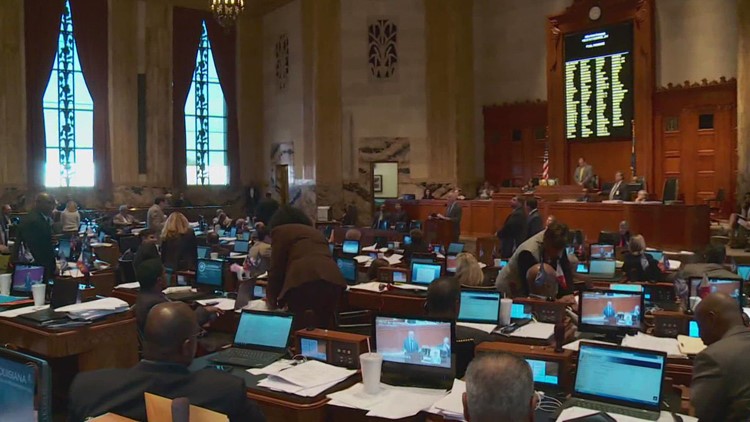NEW ORLEANS — State House members in Louisiana voted Monday to fine-tune a law enabling either the House or the Senate to end or alter a governor’s emergency declarations.
The bill by Abita Springs Republican Lawrence Frieman follows clashes between Democratic Gov. John Bel Edwards and some GOP officials over now-expired mitigation efforts, such as mask mandates and public gathering limits, against COVID-19.
Current law already allows either chamber of the Legislature to cancel an entire emergency declaration by using a petition signed by a majority of its members.
The bill approved Monday at the Capitol in Baton Rouge would allow partial cancellation — a move backers said is needed because a complete cancellation could endanger federal funds.
“It allows us to go in with a scalpel,” Frieman said.
The bill was approved on a 65-31 vote over the objections of opponents who said the concept of allowing a single legislative body to cancel an emergency without the assent of the other is unconstitutional.
They also questioned language in Frieman's bill that changes a requirement that the legislative bodies consult with the state Health Department secretary before moving to end a public health emergency. The bill requires consultation with a “public health specialist" with a degree from an accredited public health school. Frieman argued that the law shouldn't require consultation with an appointee of the governor who makes the declaration.
Rep. Dustin Miller, an Opelousas Democrat, said Frieman should consider requiring consultation with a panel of experts as the bill moves through the legislative process. The bill goes next to the Senate.
House members voted in 2020 to end an Edwards public health emergency declaration. A state judge ruled that the law enabling one legislative body to cancel the declaration was unconstitutional, but the case never ended with a definitive appellate or Supreme Court ruling. An appellate court ruled the issue moot after the emergency order in question had expired.
If Frieman's bill becomes law, it would take effect on Jan. 8, 2024, when a new governor takes office, succeeding the term-limited Edwards.



